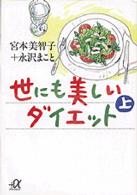Full Description
Disruptive pedagogies for archival research
In a cultural moment when institutional repositories carry valuable secrets to the present and past, this collection argues for the critical, intellectual, and social value of archival instruction. Graban and Hayden and 37 other contributors examine how undergraduate and graduate courses in rhetoric, history, community literacy, and professional writing can successfully engage students in archival research in its many forms, and successfully model mutually beneficial relationships between archivists, instructors, and community organizations.Combining new and established voices from related fields, each of the book's three sections includes a range of form-disrupting pedagogies. Section I focuses on how approaching the archive primarily as textfosters habits of mind essential for creating and using archives, for critiquing or inventing knowledge-making practices, and for being good stewards of private and public collections. Section II argues for conducting archival projects as collaboration through experiential learning and for developing a preservationist consciousness through disciplined research. Section III details praxis for revealing, critiquing, and intervening in historic racial omissions and gaps in the archives in which we all work.
Ultimately, contributors explore archives as sites of activism while also raising important questions that persist in rhetoric and composition scholarship, such as how to decolonize research methodologies, how to conduct teaching and research that promote social justice, and how to shift archival consciousness toward more engaged notions of democracy. This collection highlights innovative classroom and curricular course models for teaching with and through the archives in rhetoric and composition and beyond.
Contents
List of Illustrations and Tables
Foreword: The Archives of Epistemic Possibility by Ryan Skinnell
Acknowledgments
Teaching Rhetoric and Composition through the Archives: Critical Introduction by Wendy Hayden and Tarez Samra Graban
Section I. Archives as Text
1. Using the Archives to Teach Slow Research and Create Local Connections by Lisa Mastrangelo
2. Cultivating a Feminist Consciousness in the University Archive by Lisa Shaver
3. Arranging Our Emotions: Archival Affects and Emotional Responses by Jane Greer
4. Creative Storytelling: Archives as Sites for Nonfiction Research and Writing by Katherine E. Tirabassi
5. Assembled Trajectories, Perishable Performances, and Teaching from the Harvard Archives by James Beasley
Section II. Archives as Collaboration
6. Internships as Techne: Teaching the Archive through the Museum of Everyday Writing by Jennifer Enoch, Megan Keaton, Ellen Cecil-Lemkin, and Travis Maynard
7. Listening Rhetorically to Build Collaboration and Community in the Archives by Shirley K Rose, Glenn C. W. Newman, and Robert P. Spindler
8. Recursion and Responsiveness: Archival Pedagogy and Archival Infrastructures in the Same Conversation by Jenna Morton-Aiken and Robert Schwegler
9. Tending Archives: Digital Archival Practices and Making the Work of Technical Communicators Visible to Students by Erin Brock Carlson, Michelle McMullin, and Patricia Sullivan
10. Professional Writing for the Archives: Collaboration and Service Learning in a Proposal Writing Class by Jonathan Buehl, Tamar Chute, and Laura Kissel
Section III. Archives as Activism
11. Delinking Student Perceptions of Place With/in the University Archive Laura Proszak and Ellen Cushman
12. Archives as Resources for Ethical In(ter)vention in Community-Based Writing Michael-John DePalma
13. Learning to (Re)Compose Identities: Creating and Indexing the JHFE Jewish Kentucky Oral History Repository with Undergraduate Researchers and Jewish Rhetorical Practices by Janice W. Fernheimer, Beth L. Goldstein, Sarah Dorpinghaus, and Douglas A. Boyd
14. "Flagged for Deletion": Wikipedia, the Federal Writers' Project and First-Year Composition by Courtney Rivard
15. Is Anyone Sitting Here?: Mirroring Gaillet's "Survival Steps" in a Community-Based, Justice-Focused Classroom by Jeanne Law-Bohannon and Shiloh Gill Garcia
16. "Loving Blackness" as a First-Year Composition Student Learning Outcome in the Archives by Michelle S. Hite, with Tiffany Atwater, Holly Smith, and Andrea Jackson
Afterword: Why Teach through the Archives? by LynÉe Lewis Gaillet and Katherine H. Adams
Appendix A: "Creative Storytelling": Creative Nonfiction Archival Research Project
Appendix B: ENC 6700 Studies in Composition Theory
Appendix C
Appendix D: Spelman College English Composition Shared Student Learning Outcomes
Contributors
Index







